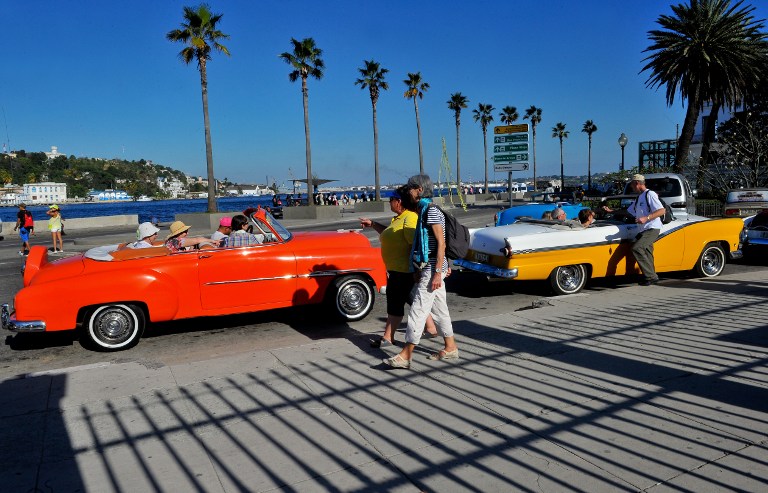The clashes, confirmed by demonstrators and the police, were the first signs of tension in the capital Kinshasa as the vast central African country geared up for its second post-war poll.
President Joseph Kabila is favourite to be re-elected in the November vote, but he is becoming increasingly unpopular because of his failure to tackle corruption and bring peace to the east.
Congo’s vast mineral wealth is attracting growing investor interest, but most Congolese live in abject poverty.
A car was burned and several people were arrested after leaders of the UDPS, one of the main opposition parties, were stopped from delivering a memorandum to the electoral commission listing their concerns, a Reuters witness said.
The opposition says the registration process has been opaque and involved some double counting, and wants an extension of the registration process in Kinshasa.
The UDPS is led by Etienne Tshisekedi, whom analysts say could pose the biggest threat to Kabila in the polls. The delegation, which was led by party secretary-general Jacquemain Shabani Lukoo, was later allowed into the building but riot police continued to tear gas their supporters.
“We deplore the way we were refused entry when we just wanted to deliver our memorandum,” Shabani said, adding that several people had been injured in the clashes.
The Congo police chief, General Charles Bisengimana, told Reuters the demonstrators had not received authorisation for the protest and police had intervened to restore public order.
“They had no right to set fire to a taxi or to throw Molotov cocktails at police vehicles,” he added, saying one policeman was injured in the clashes.
A photo journalist for a local newspaper said he was beaten and his camera broken during the fracas.
The elections are seen as crucial for bringing stability to a country that has suffered decades of conflict and dictatorship, but analysts worry about their credibility.
More than three quarters of Congo’s 31 million voters are registered but opposition parties distrust the electoral commission and its head Daniel Ngoy Mulunda, a Kabila ally.
Electoral commission member Laurent Ndaye said they would look into the complaints.
Congo’s 2006 vote was praised as transparent, although it was marred by violence in which hundreds of people were killed.


















